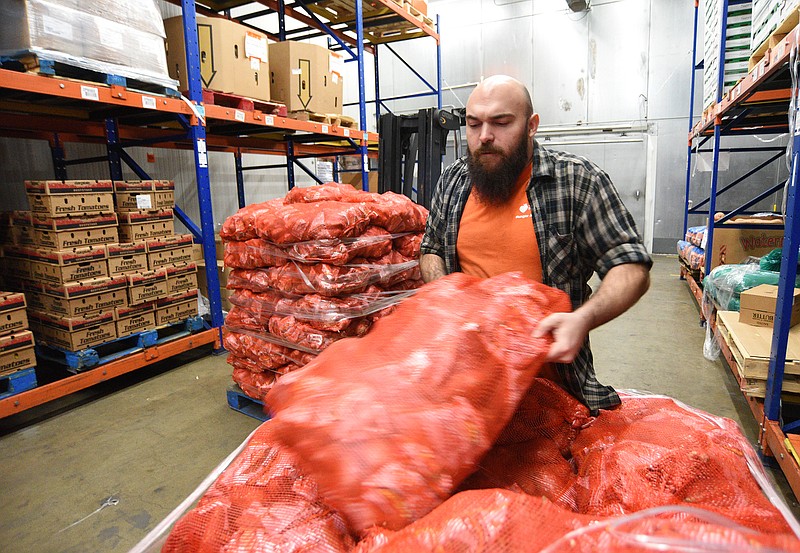A recent child health survey found that 1 in 3 Tennessee families experienced food insecurity in 2021, with nearly half of families receiving support from a food assistance program.
The annual Tennessee child health survey conducted by the Vanderbilt Center for Child Health Policy surveyed 1,000 parents across the state.
By region, 48% of east Tennesseans reported using a food assistance program, compared to 40% of Middle Tennessee and 46% of West Tennessee.
(READ MORE: Food insecurity grows in the Chattanooga area as food and fuel costs rise)
The U.S. Department of Agriculture defines food insecurity as "a lack of consistent access to enough food for an active, healthy life" and a lack of financial resources for food at the family level.
The survey results also evaluated how food insecurity affects families of color.
Half of Black families responding reported the use of a food assistance program, compared to 41% of white families. About 41% of Black families reported experiencing food insecurity, in comparison to 29% of white families, and 26% of Black families used free or reduced school meals, compared to 24% of white families.
Families have access to several state and local programs created to assist with food insecurity, including the Pandemic-EBT, the Supplemental Nutrition Assistance Program, school meals and food stamps.
The Child Tax Credit program, which began giving parents with children a monthly payment in 2021, reported that families spent a good share on food, said Center for Child Health Policy Director Stephen Patrick.
Of those surveyed, 22% received food stamps, 10% received funds from the Women, Infant and Children Program (WIC) and 6% received food from their childrens' school.
Another 8% of families reported receiving food from food banks, pantries and other charitable organizations, but given that survey results haven't changed much in the past two years, said Patrick, this goes to show that food insecurity continues to affect families.
"We're not doing enough. More needs to be done," he said.
(READ MORE: Thousands of military families struggle with food insecurity)
A bill headed to the Tennessee General Assembly seeks to provide some relief for families by making school breakfast and lunch free for students by reimbursing the cost of the meal.
Of the families surveyed, 90% supported free school meals.
If any issue can remain without political divide, said Patrick, it's food insecurity, considering children cannot learn on an empty stomach.
"It appears from our polling that parents agree this is an issue and are supportive of solutions. It's not a terribly divisive issue," he said.
Read more at TennesseeLookout.com.
